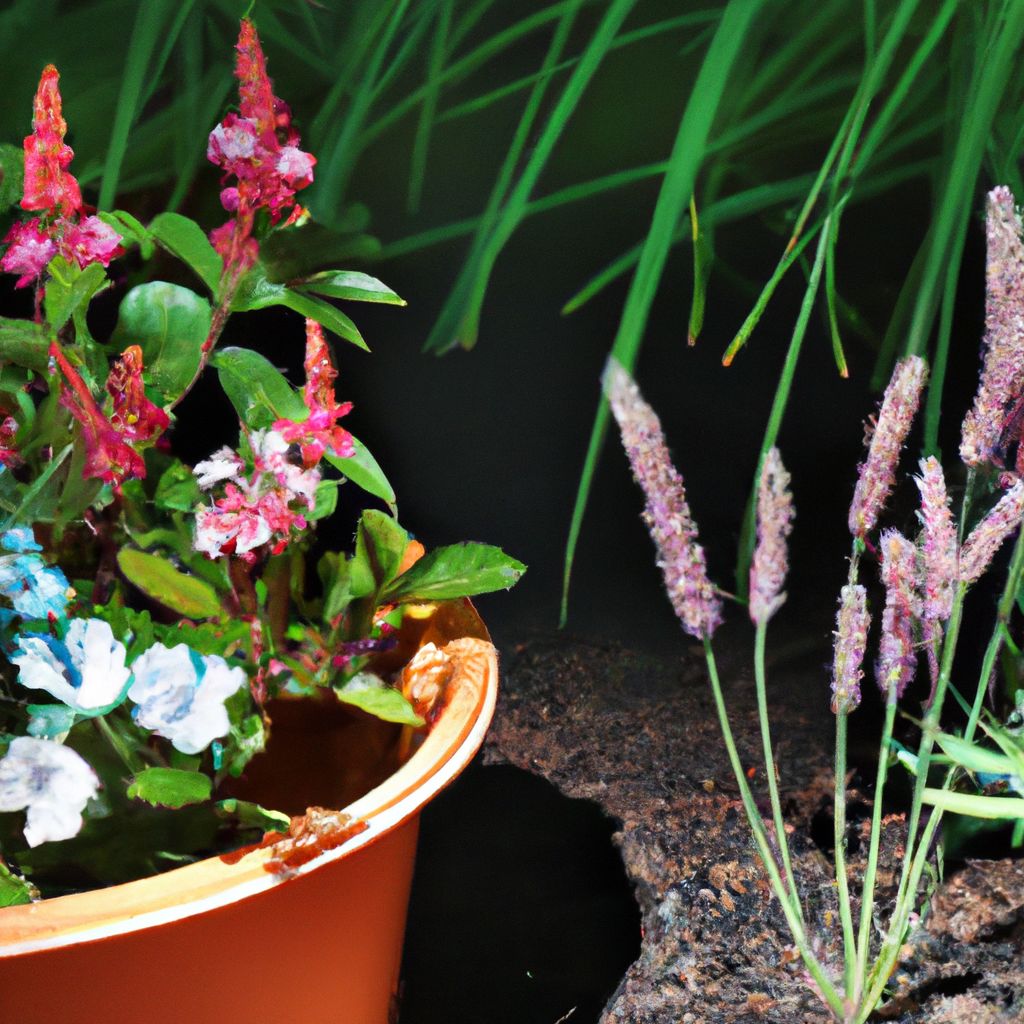Rock phosphate is a natural mineral fertilizer used by gardeners to provide phosphorus for plants’ growth and development. When properly incorporated into gardening practices, rock phosphate offers numerous benefits to your soil.
The Key Advantages of Using Rock Phosphate for Plants
Promotes Strong Root Growth
- Rock phosphate contains phosphorus which aids the development of healthy, robust root systems in plants. This leads to improved nutrient and water absorption.
- The phosphorus stimulates root elongation and branching while also strengthening the overall root structure.
Some specific ways rock phosphate promotes strong root growth:
- Enhances nutrient absorption – The phosphorus ensures robust uptake of nutrients needed for growth.
- Stimulates root elongation – Phosphorus elongates roots, helping plants establish deeper systems.
- Improves water and nutrient uptake – Robust roots absorb more water and nutrients from soil.
- Increases root branching – The phosphorus promotes increased root branching and surface area.
- Strengthens root structure – Phosphorus enables roots to form strong, sturdy structures.
Improves Nutrient Absorption
- Rock phosphate enhances the availability and absorption of vital nutrients like nitrogen and potassium.
- Phosphorus improves nutrient mobility within the plant, ensuring proper distribution.
- Overall utilization and efficiency of nutrients is increased.
Details on how rock phosphate improves nutrient absorption:
- Increases availability – Rock phosphate releases phosphorus into soil for easy uptake.
- Stimulates root development – Robust roots formed absorb nutrients effectively.
- Enhances mobility – Improves movement of nutrients within the plant system.
- Improves utilization – More phosphorus means better use of nitrogen, potassium, etc.
Enhances Soil Fertility
- As an organic source of phosphorus, rock phosphate replenishes nutrient levels in the soil.
- It also enhances moisture retention and improves the physical soil structure.
- These effects boost microbial activity and maintain optimal soil fertility.
The ways rock phosphate enhances soil fertility:
- Increases nutrient availability – Phosphorus released into soil raises fertility.
- Promotes microbial activity – Phosphorus stimulates beneficial microbes in soil.
- Improves soil structure – Leads to better water and nutrient retention.
- Replenishes phosphorus – Restores optimal soil phosphorus levels.
Boosts Flower and Fruit Production
- The phosphorus in rock phosphate promotes the formation of flower buds and proper development.
- This leads to abundant blooms and improved fruiting.
- Size, taste, and nutritional quality of fruits are also enhanced.
How rock phosphate boosts flowering and fruiting:
- Promotes flower bud formation – Phosphorus enables healthy bud development.
- Results in abundant blooms – More buds equals more flowers.
- Improves fruit set – Proper phosphorus levels ensure good fruit set.
- Increases fruit size and quality – Phosphorus improves taste and nutrition in fruits.
- Aids in fruit maturation – Forms sugars, proteins and oils needed for fruit growth.
Supports Overall Plant Health
- Rock phosphate provides phosphorus needed for key plant growth processes.
- It bolsters plant vigor, disease resistance, and resilience against environmental stressors.
- General metabolic functions and overall plant health are supported.
Ways rock phosphate supports overall plant health:
- Provides essential phosphorus – Needed for multiple growth processes.
- Improves plant vigor – Plants are stronger, healthier and more resilient.
- Increases stress tolerance – Makes plants better able to handle drought, heat, etc.
- Aids metabolic functions – Essential for photosynthesis and other processes.
- Bolsters defenses – Helps plants resist diseases and pests.
Proper Usage Guidelines

To properly utilize rock phosphate and maximize the benefits, follow these guidelines:
- Determine the right amount – Conduct soil tests and research plant-specific needs. Avoid using too much.
- Incorporate into soil – Mix thoroughly into soil before planting or during preparation. Spread evenly and work into top layers.
- Apply as a fertilizer – Sprinkle around plants during growth, keeping it away from direct contact with roots.
- Use as a seed starter – Mix with starter mix for phosphorus-boosted seed germination.
- Combine with compost – Blend with aged compost at a 1:3 rock phosphate to compost ratio.
Application Tips
When applying rock phosphate, follow these tips:
- Choose the proper grade – Select grade based on phosphorus content and plant needs.
| Grade | P2O5 Content | Usage |
|---|---|---|
| 1 | 30% | Plants with low phosphorus |
| 2 | 25% | General garden use |
| 3 | 20% | Maintaining fertile soil |
| 4 | 15% | Plants not needing phosphorus boost |
- Follow recommended rates – Stick to manufacturer instructions based on area treated.
- Time applications correctly – Apply during early growth or when soil temperature is 55-60°F.
- Water thoroughly after applying – Water deeply to aid nutrient absorption. Avoid overwatering.
FAQs
Is Rock Phosphate Safe for Organic Gardening?
Yes, rock phosphate is derived from natural mineral deposits and contains no synthetic chemicals, making it a safe organic gardening amendment. It promotes soil health naturally.
How Long Does Rock Phosphate Take to Work?
Results are visible within weeks to months depending on soil fertility, application rate, and other factors. As a slow-release fertilizer, benefits continue accumulating over time.
Can Too Much Rock Phosphate Harm Plants?
Excessive amounts can lead to nutrient imbalances. Follow package instructions carefully and do soil tests to determine proper application rates.
Can Rock Phosphate Be Used on Indoor Plants?
Yes, indoor plants can benefit from rock phosphate by mixing it into potting soil, top-dressing, or dissolving in water. Tailor amounts to each plant’s needs.
Where Can I Buy Rock Phosphate?
Rock phosphate can be purchased at garden centers, nurseries, farm supply stores, online retailers, or through gardening clubs and associations.
Why Rock Phosphate Is a Game Changer

As a natural source of phosphorus, rock phosphate can truly take your gardening to the next level. Here’s a quick look at why it’s a game changer:
- Promotes vigorous growth – Robust root systems and plant vigor result in better growth.
- Increases yields – More flowers and larger, better quality fruits boost yields.
- Enriches soil – Replenishes soil nutrients and enhances fertility for the long term.
- Safe organic option – Provides a natural fertilizer choice compared to synthetic alternatives.
- Improves plant health – Healthier, hardier plants have better stress tolerance.
- Easy to use – Simple to incorporate into soils or apply as fertilizer.
- Lasting benefits – Phosphorus is slowly released for continuous nourishment.
With proper usage, rock phosphate can help create the optimal conditions in your garden for plants to really thrive. It’s a safe, sustainable way to boost your gardening outcomes.
More Detailed Benefits of Using Rock Phosphate for Crops
Let’s take a deeper look at some of the top benefits of incorporating rock phosphate into your gardening practices:
1. Stimulates Extensive Root Growth
The phosphorus in rock phosphate is essential for the growth and spread of plant root systems. It helps stimulate lateral root formation, root hair production, and root branching. The end result is a extensive network of robust roots that can access water and nutrients from a larger volume of soil. Stronger roots also provide stability and resilience against drought or wind.
2. Boosts Flowering and Fruiting
The nutrients in rock phosphate promote the development of flower buds and proper bloom formation. This leads to prolific flowering with colorful and vibrant blooms. For plants that produce fruits, rock phosphate provides phosphorus needed for fruit setting and maturation. The end result is not only increased yields but also bigger, tastier fruits packed with vitamins and minerals.
3. Aids Nutrient Absorption and Mobility
Rock phosphate makes nutrients like nitrogen and potassium more available for plant uptake. The phosphorus also facilitates the movement of these nutrients to where they are needed within the plant. This leads to healthier growth, better plant vigor, greener leaves, and strong stems. Improved nutrient absorption and mobility is key.
4. Enhances Resistance to Diseases
By promoting overall plant health and providing needed nutrients, rock phosphate enhances the natural resistance of plants to fungal diseases, bacterial infections, and viral attacks. Healthy plants are better able to withstand and fend off pathogens before they can spread and cause major damage.
5. Improves Drought Tolerance
Extensive root systems stimulated by rock phosphate allow plants to access water from deeper in the soil profile. The phosphorus also aids osmoregulation which helps plants retain moisture. Together, these mechanisms improve the drought tolerance of plants, allowing them to better handle short-term water shortages and thrive in hot, dry conditions.
6. Increases Organic Matter in Soil
As rock phosphate breaks down over time, it releases phosphorus as well as calcium and trace minerals into the soil. This adds to the organic matter content. Higher soil organic matter leads to better water holding capacity, improved aeration and drainage, and abundant food for helpful soil microorganisms.
7. Provides Sustainable Source of Phosphorus
Rock phosphate is preferred over synthetic phosphate fertilizers because it comes from natural mineral deposits and requires minimal processing. Using this sustainable source of phosphorus enhances soil health while reducing environmental impacts. It’s a win-win organic approach.
8. Offers Gradual Nutrient Release
Unlike chemical fertilizers that rapidly dissolve, rock phosphate breaks down slowly over a period of several months to a year. This gradual release means plants receive a steady supply of phosphorus when they need it rather than all at once. There is less nutrient loss through leaching or runoff as well.
9. Improves Soil Structure
In addition to phosphorus, rock phosphate contains trace amounts of calcium, iron, aluminum and silica. As it decomposes, these minerals help improve soil structure by binding tiny soil particles into aggregates. This creates a looser, crumbly soil texture that allows for better water infiltration and drainage.
10. Cost-Effective Multi-Year Solution
Because rock phosphate has a slow, gradual nutrient release, a single application can continue providing phosphorus to plants for 2-3 years. This makes it very cost-effective compared to water-soluble fertilizers that must be applied yearly for the same results. It’s a smart long-term investment.
When and How to Apply Rock Phosphate
Now that you know the many benefits of using rock phosphate in your garden, let’s look at some best practices for application:
- Conduct a soil test to determine current phosphorus levels so you know how much to apply.
- Spread rock phosphate over the soil and mix thoroughly before planting new beds.
- Top dress around established plants, keeping it a few inches away from stems.
- Water deeply after application to aid absorption and minimize runoff.
- Apply in the early spring or when soil temperatures reach 55-60°F for best results.
- Re-apply every 2-3 years as phosphorus levels drop over time.
- Adjust amounts based on plant requirements – heavy feeders need more.
- Combine with compost or organic matter via a 1:3 ratio for enhanced effects.
- Reduce amounts for seed starters – too much can inhibit germination.
- Follow all label recommendations for your specific product.
Taking these steps will ensure you apply rock phosphate correctly for optimal benefits in your garden.
Is Rock Phosphate Right for You?

Rock phosphate offers a valuable organic source of phosphorus and other nutrients to enhance plant growth, yields, and overall health. However, it may not be the ideal choice in all situations. Consider the following factors:
When Rock Phosphate Works Best
- Soils low in phosphorus or severely depleted
- New garden beds being established
- Plants with high phosphorus needs – vegetables, fruits, flowers
- Organic gardens seeking natural amendments
- Acidic soil conditions (pH below 7)
When Alternatives May Work Better
- Very alkaline soils (rock phosphate less available above pH 7.5)
- Soils already high in phosphorus
- Seeking immediate growth response – use faster acting fertilizers
- Need micronutrients not found in rock phosphate
- Limited budgets – can be costlier than synthetic fertilizers
Other Considerations
- Slower acting than chemical fertilizers
- Can temporarily interfere with iron or zinc uptake
- Contains traces of heavy metals like cadmium
- Requires working into soil for best effectiveness
Understanding if your specific situation aligns with when rock phosphate works best or when alternatives may be preferable allows you to make the right choice. Test your soil, know your plants’ needs, and weigh the pros and cons.
The Verdict: Rock Phosphate for Plants
When properly applied, rock phosphate can be a game-changing organic fertilizer that takes garden outcomes to the next level. With a host of benefits like stimulating extensive root systems, increasing flowering and fruit production, enhancing disease resistance, and improving soil structure, rock phosphate provides a natural phosphorus source to boost plant health and yields. Follow best practices and application tips to maximize results. With the power of rock phosphate, gardens can reach their full potential!
















































